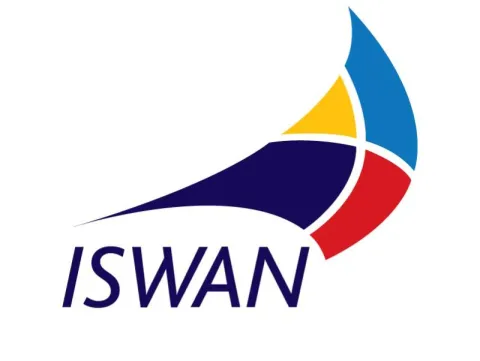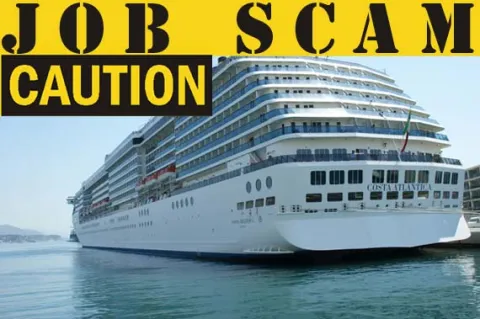
Carnival Cruise Line is investigating a casino scam involving two casino staff members and passengers that lasted for three months, costing the company over $100,000. The scam, which was discovered a few weeks ago aboard the Carnival Glory, has led the company to investigate the number of people, resulting in several terminations. While the two staff members were not arrested, it has not been confirmed whether the other fired employees are being held responsible for failing in their supervisory duties.
The scam was exposed by a Carnival employee who sent us a detailed letter outlining the events. This letter was also shared with Cruise Law News, which posted it on its Facebook page.
According to the letter, two experienced casino dealers, along with accomplices, stole more than $100,000 by paying out losing bets, adding money to their own bets using house funds, and failing to collect losing bets from players.
The Casino Fraud
The scam, which took place between May and August 2024, involved two casino dealers from Peru, who had been working together for two years. The crew member said that the pair exploited the ship's lax supervision, targeting roulette and blackjack tables. By manipulating payouts, stealing chips, and falsifying buy-ins, they managed to pocket a large amount of money without rising suspicion for three months.
The dealers worked closely with a group of Spanish-speaking guests who frequently cruised on the ship. These guests, who spoke Spanish, mainly played with the Peruvian dealers, making it difficult for the supervisors to detect what was happening at the tables.

How the Scam Worked
The letter detailed several fraudulent tactics used by the dealers:
Stealing Chips: The dealers would take chips from the table’s float and conceal them in their clothes.
Incorrect Payouts: On roulette tables, they would pass incorrect payouts, mix high-value cash chips with color chips, and add chips to winning numbers after the spin.
Blackjack Manipulation: In blackjack, the dealers would pay out losing bets or fail to collect losing wagers from guests.
Falsified Buy-ins: When guests bought chips, the dealers would underreport the amount in the system, allowing them to steal chips without affecting the table’s financial records.
Despite surveillance cameras being installed at the casino tables, they were only reviewed in the event of disputes, allowing the scam to continue undetected for months. The fraud came to light when a supervisor noticed a blackjack dealer pushing a bet that should have been lost. A closer review by management revealed the larger scam, which had been ongoing for months.
"Here’s how they got caught: one supervisor noticed during a blackjack game that a player had 12, and the dealer was showing 20, but the dealer pushed the bet. The supervisor approached the table and asked the dealer (as the cards had already been cleared) if it was a losing bet and if the dealer had made a mistake by not collecting the bet. The dealer denied any error. To clear his doubt, the supervisor called the manager for a surveillance review. When the manager reviewed the current and previous plays, they realized it was a scam. After reviewing the entire session, they reported it to the Miami office, where the surveillance team dug into the whole history. They discovered that this scam had been going on aboard the Carnival Glory for three months, and also found out that the perpetrators had been doing it for three contracts over the course of two years without ever being caught," the employee said.
Fallout: Failures and Treatment
The discovery of the scam led to widespread consequences for the casino team aboard Carnival Glory. According to the crew member, several staff members were unfairly punished. The casino manager, six supervisors, and other staff were fired or sent home early, despite their lack of direct involvement in the scam. This mass termination has fueled frustration among the crew, who feel that Carnival's handling of the situation was unjust.
The letter also criticized Carnival's management for neglecting its onboard procedures, especially in the aftermath of the COVID-19 pandemic. The crew member pointed out that mass hiring of inexperienced staff had led to insufficient training where scams like this are likely to happen.
This incident has raised serious questions about how such a large-scale scam could go unnoticed for so long and whether Carnival will take steps to improve oversight and support for its employees. The crew member hopes their message will reach the wider cruise community, ensuring that crew members are vigilant and report concerns immediately.
Following the crew member's revelation of the scam, it's clear that cruise lines will need to reevaluate their policies, professional programs, and recruitment standards, as many are hiring inexperienced staff. In the past, casino staff were highly trained, and working in the casino department was considered prestigious position. Nowadays, it's more about cutting costs, with little regard for mental health or employee benefits.
Another issue is that fewer experienced casino professionals are willing to work on cruise ships due to lower pay compared to land-based casino jobs. Virgin Voyages is one of the few cruise lines offering competitive wages, while many others, including Carnival and Royal Caribbean lag behind.












